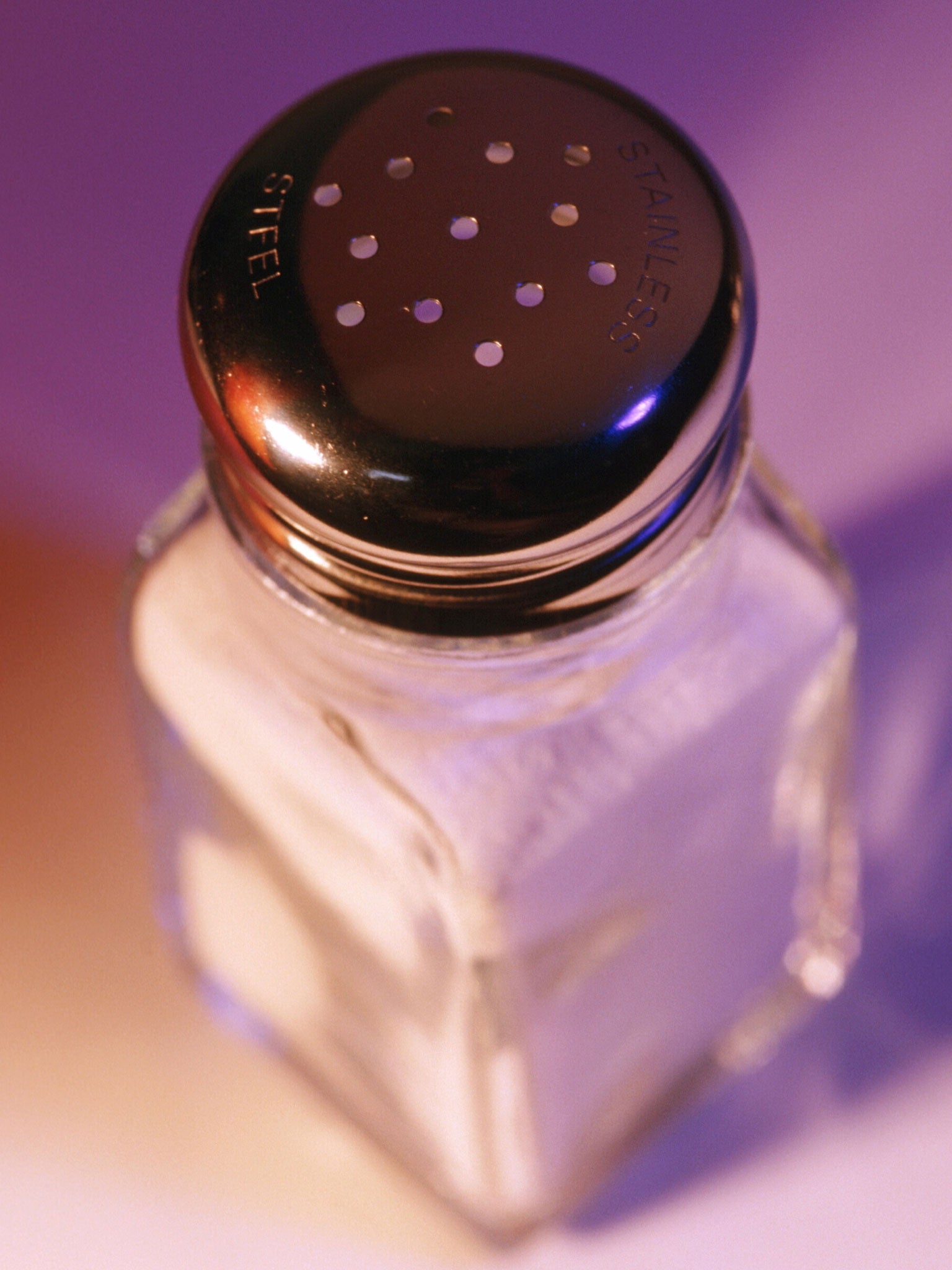Halve our salt intake and save millions of lives, says new report

Your support helps us to tell the story
From reproductive rights to climate change to Big Tech, The Independent is on the ground when the story is developing. Whether it's investigating the financials of Elon Musk's pro-Trump PAC or producing our latest documentary, 'The A Word', which shines a light on the American women fighting for reproductive rights, we know how important it is to parse out the facts from the messaging.
At such a critical moment in US history, we need reporters on the ground. Your donation allows us to keep sending journalists to speak to both sides of the story.
The Independent is trusted by Americans across the entire political spectrum. And unlike many other quality news outlets, we choose not to lock Americans out of our reporting and analysis with paywalls. We believe quality journalism should be available to everyone, paid for by those who can afford it.
Your support makes all the difference.If we could end our love affair with salt we would save tens of thousands of lives in Britain and millions around the world, researchers claim today.
Halving daily consumption from 9-12 gms a day, the goal set a decade ago, could prevent 35,000 deaths from heart disease and stroke in the UK and 2.5 million deaths globally.
Professor Graham MacGregor of the Wolfson Institute of Preventive Medicine at Barts and the London Medical School, a lifelong campaigner on the dangers of salt and author of a review of 34 trials involving 3,000 adults published tomorrow in the British Medical Journal said the findings showed a “modest reduction” in salt consumption led to significant falls in blood pressure.
“This will … reduce strokes, heart attacks, and heart failure. Furthermore, our analysis shows a dose-response relation — that is, the greater the reduction in salt intake, the greater the fall in blood pressure,” Professor MacGregor and colleagues said.
“All countries should adopt a coherent and workable strategy to reduce salt intake. A reduction in population salt intake will have major beneficial effects on health along with major cost savings in all countries around the world.”
The World Health Organisation recommends salt consumption is reduced to 5-6 gms a day but Professor MacGregor says this does not go far enough. He is backed by the National Institute for Care and Health Excellence (NICE) which recommends a daily limit of 3 gms for the UK.
Doubts about the wisdom of reducing salt have been raised in the last two years by rival researchers. A review of 167 studies by Niels Graudal of Copenhagen University , Denmark in 2011 found while cutting salt reduced blood pressure it increased hormones and fats in the blood that “could be harmful if persistent over time.”
Professor MacGregor said the review was flawed because many of the trials were short term and thus irrelevant in the context of a public health recommendation for a modest reduction in salt consumption over a long period.
He also dismissed two papers in the Journal of the American Medical Association in 2011 which claimed lowering salt increased heart deaths rather than decreasing them. They had many “methodological flaws,” including errors in assessing daily salt intake.
A campaign to reduce salt consumption in the UK began in 2003-4 and was deemed successful when by 2011 average salt intake had fallen by 1.4 grams a day (from 9.5 to 8.1 gms) saving 9,000 lives a year and estimated costs to the economy of over £2 billion.
A separate review of potassium found higher levels reduced blood pressure and were linked with a 24 per cent reduction in stroke. Sodium (salt) should be replaced with potassium, contained in most fruits and vegetables, the researchers from Italy say.
How to cut down on salt
The obvious way is to bin the salt shaker – something few diners will want to contemplate. Salt is the most widely used flavour enhancer, adding savour as well as preserving food. It is essential to life – but harmful in excess.
However, sealing up the salt shaker has less effect than is widely thought. The salt added at table accounts for just 20 per cent of daily consumption. The remaining 80 per cent comes from processed food – cheese, bread, pizza - and is added by manufacturers.
The result is most people consume far more salt than they realise. The first step to salt reduction is: read the label. Then try to choose low salt alternatives. Three quarters of processed foods carry traffic light labelling to indicate fat, sugar and salt content. The simple message is: eat green.
Join our commenting forum
Join thought-provoking conversations, follow other Independent readers and see their replies
Comments